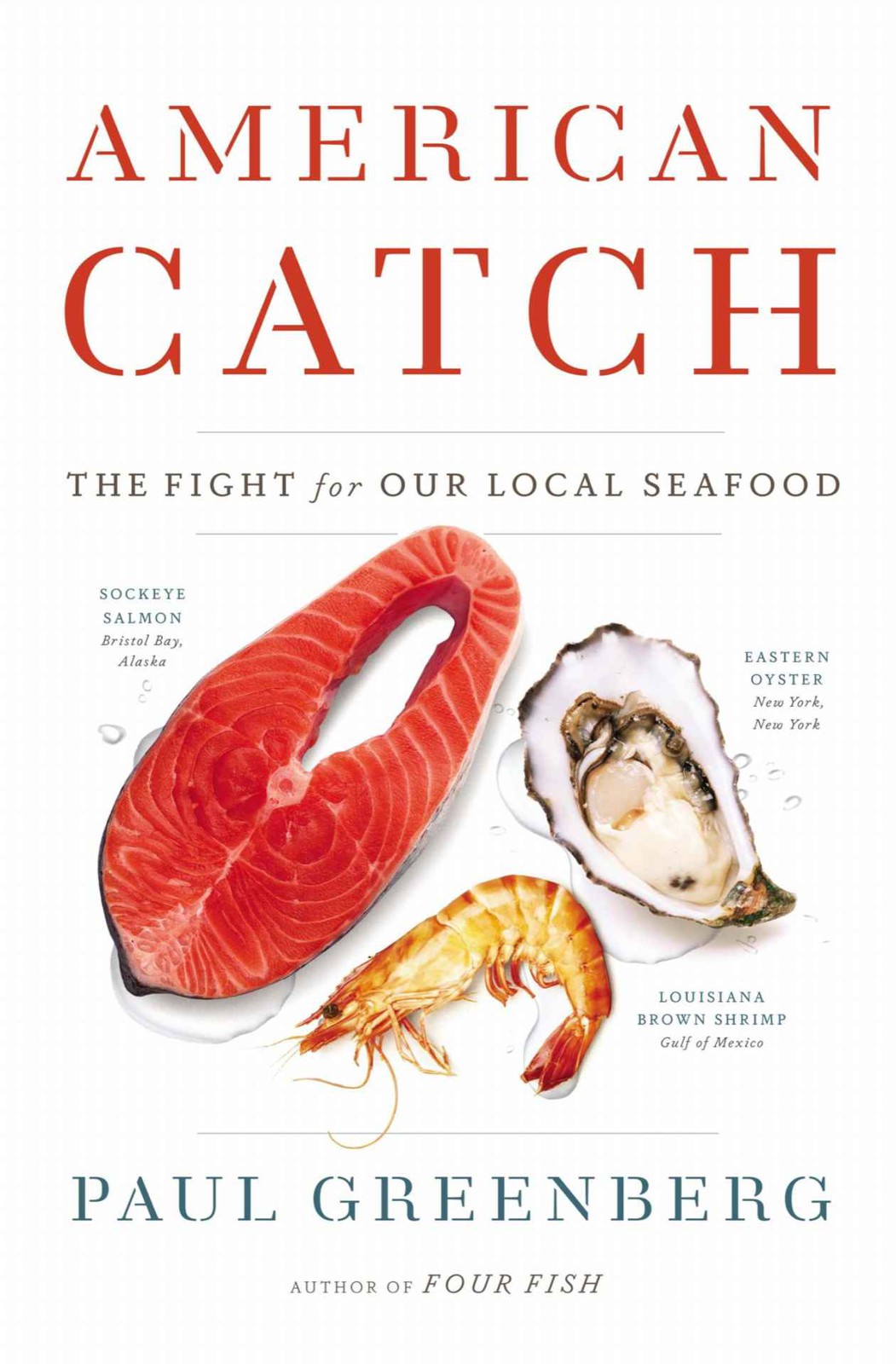
American Catch
The Fight for Our Local Seafood
کتاب های مرتبط
- اطلاعات
- نقد و بررسی
- دیدگاه کاربران
نقد و بررسی

June 9, 2014
In this sobering and crisply told tale of excess and loss, American seafood imports doubled and our seafood exports quadrupled between 1985 and 2005, according to Greenberg (Four Fish: The Future of the Last Wild Food). Focusing on three local American seafoods—Eastern oysters, Gulf shrimp, and Alaska salmon—he explores the history of the seafood, its demise in certain waters, and the impact of the loss of a species on the surrounding ecology. Until the end of the 19th century, for example, oyster banks dotted the East Coast, providing not only sustenance and a source of income for coastal towns but also keeping local waters clear, since oysters filter mud and silt from the water that washes over them. Greenberg focuses on the decline of oysters in the bays around N.Y.C., where pollution destroyed entire populations. In the company of aquatic biologists attempting to rebuild oyster banks in New York waters, Greenberg discovers the difficulties of recreating an extinct seafood population. Greenberg points out the disastrous ecological consequences of farming seafood: given that 90% of the shrimp American eat is imported, and two-thirds of the salmon farmed, our marshes, estuaries, and wetlands serve no purpose. In the end, he suggests that the seafood sector must break its ties to other extractive industries—the oil and gas industry, commercial agriculture—in order to survive and flourish and do good business with the planet.

June 1, 2014
Blue Ocean Institute fellow Greenberg (Four Fish: The Future of the Last Wild Food, 2010, etc.) offers an optimistic perspective on the connection between preserving our salt marshes and restoring America's offshore seafood production.The author presents three illustrative case studies: the effort to bring oysters back to our Eastern shores, the threat to Alaska's wild salmon industry from mining interests, and the effect of globalization on Gulf Coast shrimp. The importance of maintaining and extending our salt marshes is an accepted tenet of environmentalists, but the importance of seafood in maritime ecology is frequently overlooked-e.g., reducing pollution, creating buffers against flooding and more. Greenberg explains why fishing is not merely an extractive enterprise; it plays a critical role in maintaining the health of waterways and marshes, as well as furthering the establishment of "economically viable waterfront communities, and good, healthful food." The author suggests that one reason Americans do not prioritize protecting fish resources, such as Alaskan wild salmon, is that seafood no longer is a major component of the national diet, despite its known health value. Enlisting the consumer as an advocate for expanding the fishing industry on our home turf can make the difference between relative apathy and passionate advocacy. Greenberg describes the ongoing efforts of young volunteers to rejuvenate East Coast oyster production in New York and New Jersey. Not only is this an effort to recapture nature's bounty at some future date; it is also an immediate resource for cleaning the polluted waters. He explains how oyster reproduction depends on the buildup of reefs made of discarded shells, and he chronicles current efforts to replicate these artificially. He also shows how the shrimp industry in Louisiana operates in a global market and offers a historical perspective on the early role of Chinese immigrants in developing an Asian market for dried shrimp.A fascinating discussion of a multifaceted issue and a passionate call to action.
COPYRIGHT(2014) Kirkus Reviews, ALL RIGHTS RESERVED.

























دیدگاه کاربران